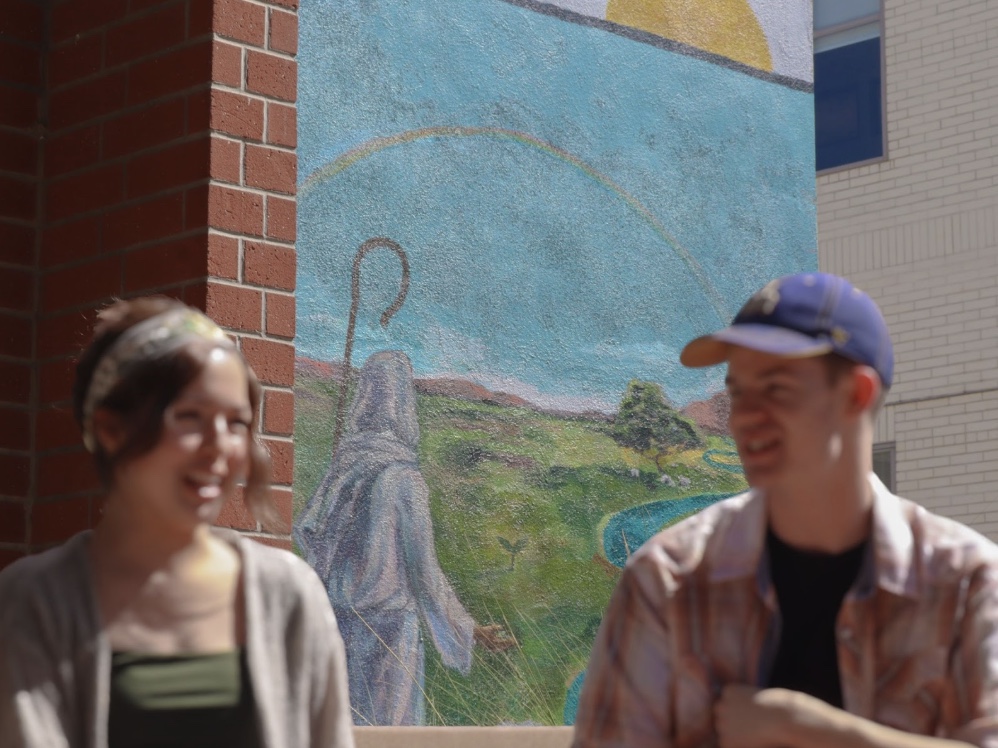It is 8 a.m., and junior Joseph Rosales is sitting in his first class of the day. He will be busy with classes and homework until lunch. Taking 16 units, he always has plenty to do. By noon, he is rushing to meet friends from his floor for lunch, but has to leave early to work at the California School Project table outside the cafe.
After an hour of telling students about the project, he is doing more homework for his 3 p.m. class. As soon as that ends, he leaves for his off-campus job, logging just a few of his 20 hours that week. By 8:30 p.m. he is back on campus for a meeting concerning his RA duties. As soon as it ends, he is studying yet again to get into the nursing program, while earning an academic scholarship and wondering when he will ever sleep.
Students like Rosales are not uncommon at Biola. Many are juggling a part-time job with their schoolwork, even more so lately because of the worsening economy.
“Parents are impacted financially, and more of the responsibility is on the students to fund their college,” Danny Paschall, associate dean of student development, said.
According to statistics from 2003, 23.9 percent of students at private colleges across the nation work an average of 10 to 19 hours a week, compared with 19 percent of students at public universities who work the same hours.
Matthew Hooper, associate dean of campus life, said it is easy for students to “not receive what [they are] already paying for” because they are unable to concentrate fully on their studies. As for the spiritual aspect, he said that “through busyness, we can avoid the hard stuff of growing,” which he said will hurt students in the long run.
Paschall also added a word of warning to students.
“Make it a priority to stay connected with yourself,” he said. “There are a lot of good things to say ‘no’ to.”
While the extra money might help students pad their wallets, many admit to missing out on much of the social and homework time they would otherwise enjoy.
Take junior Jesse Kleinjan, for example, a journalism major who is taking 13 credits this semester and working 35 hours a week. His classes keep him at school all day on Monday and Wednesday, and he works at Disneyland most other days.
“You definitely miss out on stuff,” said Kleinjan. “I work nights so I always miss out on hanging out with my friends.”
For others, on campus work might not be the source of grief, but they keep just as busy.
Freshman Arek Oconnel has a hard time finding free time. He has swim practice three days a week for four hours each time. He said Mondays and Wednesdays are the only time he can do homework, but admits that he’s usually “too tired to do it anyway.”
Other athletes have shared similar stories of how practice makes it hard to get their work done. Freshman Brooke Forsi, a track runner, said her commitment to track makes doing homework difficult because of how much energy it takes from her.
“It takes at least three hours out of your day, and then you’re physically tired,” she said.
Between sports and homework, many athletes feel they miss out on a lot of social events because of their commitments.
“A lot of my friends will plan things and invite me, and I’ll have to say ‘no’ because I have practice or a game,” said Caitlin Peterson, a sophomore on the girls’ soccer team.
For Rosales, even the weekend doesn’t bring solace.
“This last weekend I had three papers and about nine chapters to read,” he said.
He said his schedule shows no sign of improving, so in his words, he’ll have to just keep “running ragged.”







